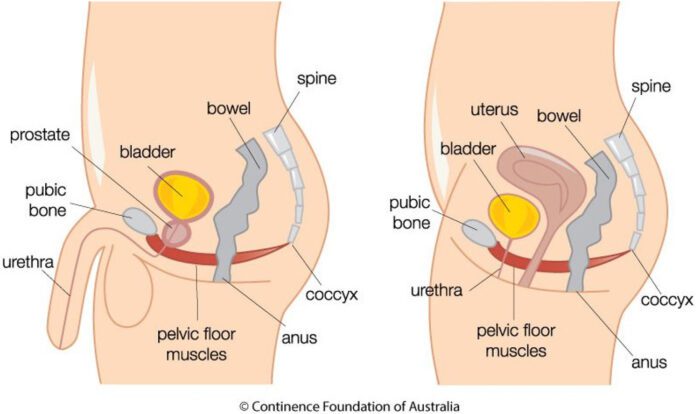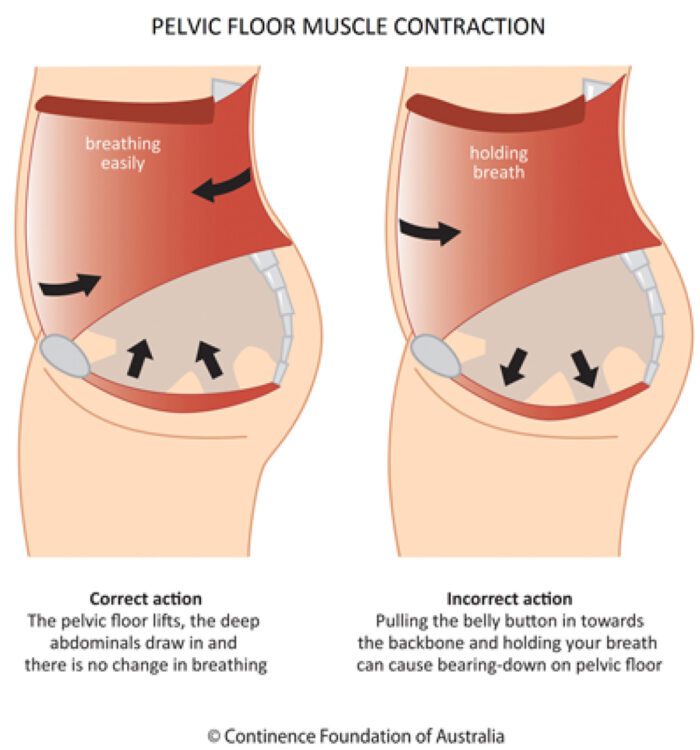Women's Health at Life Ready Warwick
A comprehensive review of your body and its ability to safely return to exercise after the arrival of your little one.
What is women's health physio and who can benefit from it?
Anyone with a special interest in continence and pelvic health can undertake different additional studies to become a Pelvic Health or Women’s health Physiotherapist.
Most will need to complete Postgraduate masters study to be called a Women’s Health (or pelvic health) Physiotherapist.
Pelvic Floor (or pelvic health physio) can help both men and women with their bladder, bowel, reproductive or sexual problems. Some of the common things physios working in this field see are:
- Urinary incontinence – from small leaks when laughing/coughing/running/jumping to large leaks where pads are soaked through or you need to change your clothes Pain with urination Pain in the pelvic or nether regions Pain with sexual intercourse or difficulties having or enjoying sexual intercourse
- Urinary urgency – you know that feeling when you need to go and need to go now and it has come out of no where? Sometimes even when you get to the toilet you might only do a little wee and find that actually maybe you didn’t need to go after all.
- Prolapse – that feeling when there is something in your vagina, maybe a lump or a bulge, sometimes this starts as a heavy feeling in the pelvis.
What about ladies that are pregnant, planning a pregnancy or have had a baby?
- Incontinence
- Low back pain
- Pelvic girdle pain or round ligament pain
- Exercising safely for both you (your pelvic floor) and bub.
- Preparing for birth
- Getting back into exercise again safely and in a way that will keep your pelvic floor strong and support you well into old age, this is especially important if you wish to do high impact exercise such as running.
- Birth trauma – episiotomies, tears, postnatal pain
- Return to sexual intercourse
- Mastitis and crac
5 Myths about the Pelvic Floor and Womans Health Physio
1. It is normal to leak urine after you have had a baby or as you age (even if you haven’t had a baby)
Incorrect! This is definitely not a normal thing, although very common and it can most definitely be fixed! Approxeimately 17% of women over 20yrs, 38% of women over 60 yrs and 77% of women in aged care suffer from urinary incontinence (1) and Yes you will find women out there that don’t mind, but you no longer have to suffer with this! Book an appointment with our women’s health physio if you would like to work on stopping that leaking!
2. Woman typically exerpience pain with sexual intercourse.
Whilst YES this is quite common, NO this is not what should be acceptable as normal. Dyspaurenia (painful Sexual intercourse) prevelance vaires accross research but is quoted to be from 3-18% (2) and is thought to be well under reported as woman are taught that this is normal from a young age. A woamns health physio can work with you on a number of different strategies to make sex enjoyable and remove the pain for good.
3. All my problems are caused by a weak pelvic floor
Whilst a lot of problems do come from a weaker pelvic floor there is also a very high rate of pelvic floor muscles that are too tight or overactive. This is particularly common in young women with high levels of stress or anxiety in their lives but can also be the result of trauma (fall onto buttocks, birth trauma), surgery, infection or inflammation. (3). A woman’s health physio can help you relax these muscles and give you a program specific to your needs to address the symptoms you are feeling.
4. Pelvic floor muscle exercises are only for people who have a vaginal birth
Did you know that not only women have a pelvic floor? Men also have a pelvic floor and exercising it is for everyone!
Whilst women who have a vaginal birth can be at higher risk due to birth trauma even women who have a c-section are also at risk as they have carried the extra weight of the baby around for 9 months. Imagine carrying a bowling ball around on your head all day – you might need to do some neck exercises if this was the case.
Other groups at higher risk of pelvic floor dysfunction include high level athletes or people who regularly complete high intensity workouts, women post gynaecological surgery or repair, pregnant women and women as they age. (4)
5. I can learn how to do pelvic floor muscle exercises from a pamphlet/book/app.
Whilst yes, this is not entirely impossible it is important that when you are doing the exercises correctly. The relaxing stage of the exercises is just as important as the contracting stage. It takes time and practice to be proficient at pelvic floor exercises and because you are unable to see them working this is sometimes more difficult than say exercising your biceps muscles in your arms. A woman’s health physio can check and ensure that you are completing both the contract and relax parts correctly and help you by providing feedback if you are struggling to feel the muscles.
It is very important that you don’t try to do the exercises on the toilet by stopping a wee as this can cause infections and complications.
Further questions? Contact the clinic today to discuss with one of our friendly team.

